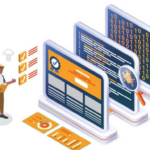Introduction:
In the dynamic landscape of technological advancements, one of the most notable breakthroughs has been the development and integration of Text-to-Speech (TTS) software. This innovative technology has transformed the way we interact with information, offering a solution to bridge gaps in accessibility and enhancing the overall user experience. In this article, we will delve into the world of Text to Speech Software, exploring its applications, benefits, and the impact it has on various industries.
Understanding Text to Speech Software:
Text to Speech Softwareis an artificial intelligence-driven technology that converts written text into spoken words. Utilizing natural language processing algorithms, TTS systems analyze the structure and content of written text, generating a human-like voice that effectively communicates the information. This technology has evolved significantly over the years, with improvements in voice quality, intonation, and the ability to convey emotions.
Applications Across Industries:
Accessibility for Differently-Abled Individuals:
Text to Speech Softwareplays a pivotal role in making information accessible to individuals with visual impairments or learning disabilities. By converting written content into spoken words, TTS enables visually impaired individuals to consume digital content, including websites, articles, and documents.
E-Learning and Education:
The education sector has embraced Text-to-Speech technology to enhance the learning experience. TTS software can convert textbooks, articles, and educational materials into audio format, catering to diverse learning styles and providing an inclusive educational environment.
Assistive Technology:
Beyond accessibility, Text to Speech Softwareserves as a crucial component of assistive technology for individuals with motor skill impairments. By converting text into speech, it allows users to interact with devices and applications through voice commands, empowering them to navigate digital platforms effortlessly.
Customer Service and User Interaction:
Many businesses leverage Text-to-Speech technology to enhance customer service interactions. Automated voice systems, powered by TTS, enable businesses to provide information, answer frequently asked questions, and guide users through various processes, improving overall customer satisfaction.
Benefits of Text to Speech Software:
Enhanced Accessibility:
TTS software breaks down barriers for individuals with disabilities, ensuring they have equal access to information. It promotes inclusivity by making digital content available to a broader audience.
Time Efficiency:
The efficiency of TTS in converting large volumes of text into speech in a short period enhances productivity. This is particularly beneficial in scenarios where time is a critical factor, such as reading long documents or proofreading.
Multilingual Support:
Text to Speech Softwareoften supports multiple languages, facilitating global communication. This feature is invaluable for businesses, educational institutions, and content creators seeking to reach diverse audiences.
Natural and Expressive Voices:
Advances in TTS technology have led to the development of more natural and expressive voices. This contributes to a more engaging and human-like experience for users, minimizing the robotic quality traditionally associated with synthesized speech.
Conclusion:
As Text to Speech Softwarecontinues to evolve, its impact on accessibility, education, and communication cannot be overstated. The ability to convert written text into spoken words has revolutionized the way we interact with information, breaking down barriers and creating more inclusive digital environments. Whether in education, customer service, or assistive technology, TTS is a powerful tool driving positive change across various industries, making information more accessible and communication more efficient.








